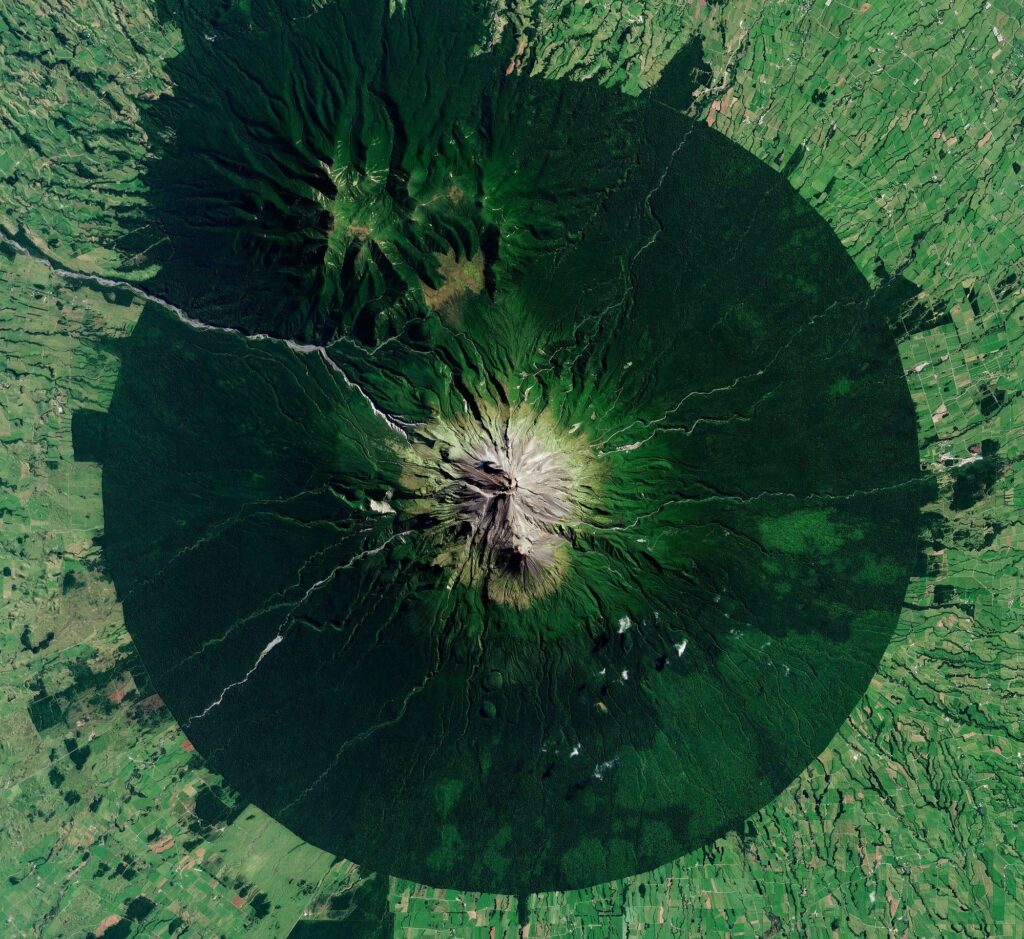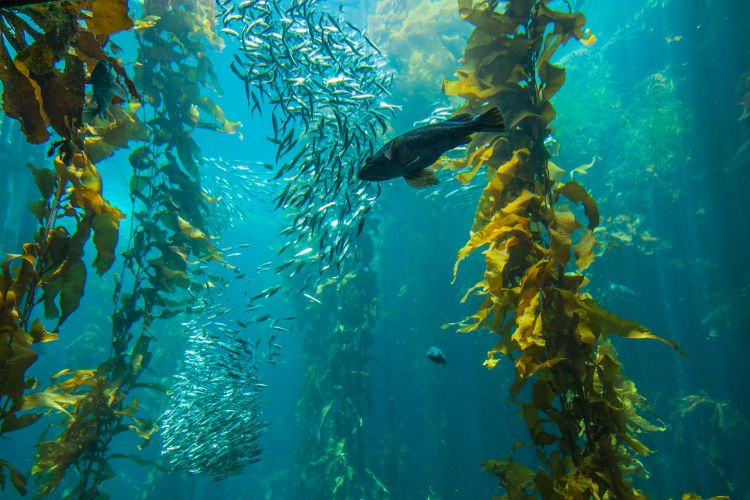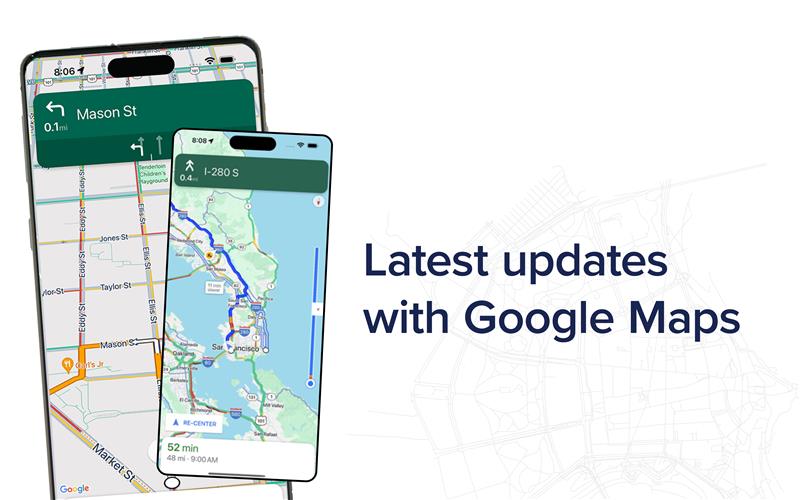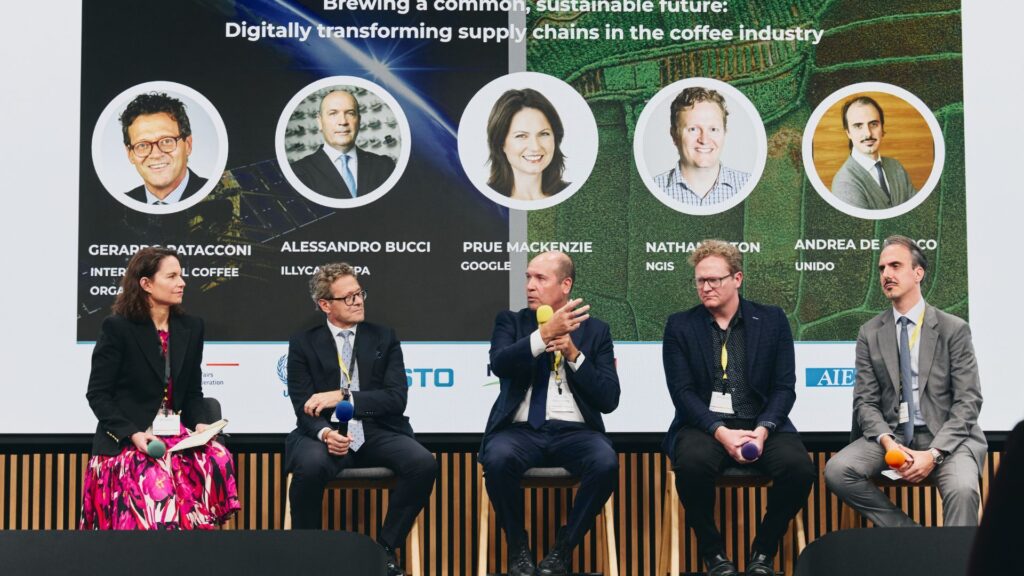Geospatial is at the heart of a sustainable future
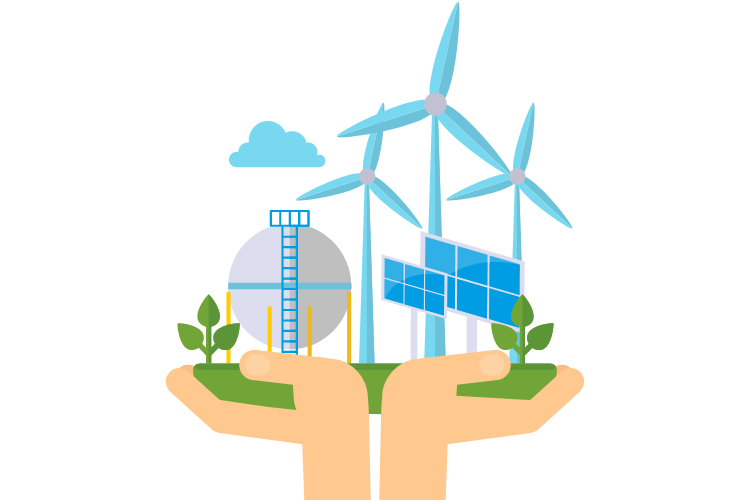
By Brittany Dahl
Here’s why NGIS is at the forefront
The most innovative, exciting work in Australia right now operates around world-changing solutions, delivered by businesses addressing all four pillars of sustainability, for our global sustainable future: environmental, cultural, social, and economic. There are many ways to achieve the four pillars of sustainability, from environmental social governance (ESG) and impact statements, to tactics embedded in everyday actions – however, the geospatial, Earth Observation (EO) and location intelligence industries are ripe with opportunities.
Trust me, I would know.
The last six months at NGIS have shown me what an enabler the geospatial industry is for long-term sustainability. In fact, I joined NGIS to help organisations build meaningful and sustainable solutions with our technology partners, such as Google, to help understand the world and how it’s changing. To apply geospatial information to make important, environmentally conscious, data-driven decisions. And we’ve been making a big effort to do this well.
What’s the problem ?
The problem is wicked. A ‘wicked problem’ is a term coined by two academics (Horst W. J. Rittel & Melvin M. Webber) in 1973, to describe a set of complex problems made up of tangled relationships, factors, or variables that don’t necessarily have a single right or wrong answer. Sustainability issues such as climate change, deforestation, water scarcity and biodiversity loss are great examples, with each involving multiple stakeholders, contradictory or changing causes, and unknown requirements to resolve on a long-term scale.
Yet, the complexities of this ‘wicked problem’ is no cause for inaction. We know these problems exist and need addressing. Just earlier this year it was announced that another Planetary boundary has been exceeded – our global stock of ‘green water’ (the water held in soil and available to plants) has surpassed the safe operating space or level to sustain humanity. This is in addition to the existing surpassed boundaries of land-system changes, biosphere integrity, and biochemical flows and other human-made chemicals including plastic.
How can we fix these global issues, and make our world a better place than how it currently exists?
The solution is to recognise sustainable development as a top business priority. To develop best practices for sustainability, environmental responsibility and management, in any relevant area of work. The International Chamber of Commerce (ICC) Business Charter has a great set of guidelines for sustainable business development – but it’s rare to see them in practice. Even in the geospatial industry, where we literally work with data directly related to sustainability issues. Even down to mapping products that connect space and places on Earth, and visualise relationships between people and their environments. Some areas of social justice, equity, and sustainability are undefined, or at worst, ignored by businesses capitalising off the land, stakeholders and services relevant to these problems. There’s still a bigger paradigm shift to be had thinking about resources, environment, and society; and an even longer way to go to meet the ‘safe and just space for humanity’ (see Kate Raworth, Doughnut Economics).
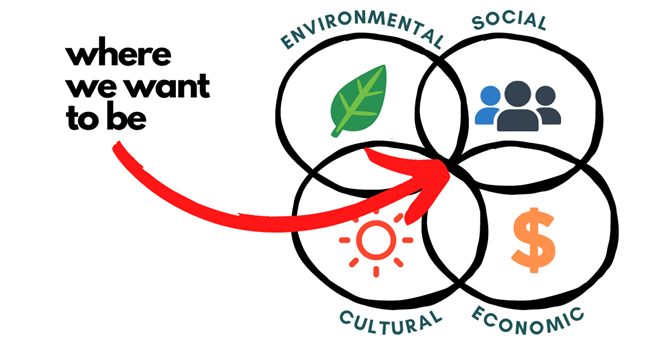
So how do we address sustainability, what’s possible?
Let’s start with our first pillar – environmental sustainability – and use NGIS as a geospatial consultancy at the forefront of implementing sustainable development.
Environmental
One achievable action is to recognise, assess, and reduce environmental impacts associated with business activities. For example, in 2021 the NGIS Group (NGIS, Liveli, EO Data Science, Winyama) purchased Biodiverse Reforestation Carbon Offsets from Carbon Neutral – these help to remove CO2 from the atmosphere every day and restore our environment. Our contribution enhances our shared natural capital with habitat restoration and land conservation while bringing social and economic benefits.
An even easier action is to prioritise environmentally sustainable projects that minimise actual and potential adverse environmental impacts. NGIS was recently named one of five global Google Cloud sustainability partners for our work in building our sustainable sourcing solution, TraceMark, to map and monitor sustainability in global supply chains. NGIS is working with some of the biggest global names involved in the sourcing of raw commodities in consumer-packaged goods, the automotive industry and mining industries to ensure companies can achieve their environmental goals.
Cultural
In Australia, cultural sustainability means valuing Indigenous voices, ownership, and heritage as the Traditional Owners of this country. As stated in the Acknowledgement of Country, it is about recognising connection to the land, waters and community, and paying respects to culture, to Elders past, present and emerging.
Since 2018, NGIS Australia has supported its partner, Winyama – an Indigenous-owned geospatial consultancy – to empower Aboriginal communities using mapping technologies. A recent initiative we have collectively worked towards is developing a program for First Nations Earth Observation. We also contribute to Winyama’s Indigenous mentoring program where Winyama interns can work on projects alongside NGIS’ team to develop their experience and knowledge on a broad range of projects.
NGIS is also a technology partner to the Indigenous Mapping Workshop (IMW); Australia’s only free, community-led geospatial training initiative for Aboriginal and Torres Strait Islander people. In 2019 we contributed equipment and team members to an in-person workshop held in Perth, which gathered over 100 learners from almost every state and territory in Australia. It is expected that the IMW in-person workshop will return to a physical format in 2023 after many years of online learning for participants.
Social
Social sustainability can include many aspects, from responsibility towards people and societies, to transparency, communications, reporting, collaboration and partnerships for continuous improvement.
A simple action is to recognise the importance of people — both employees and external stakeholders — as critical to the success of any business. This can include providing employees with benefits to give back to their local communities and wider groups. For example, NGIS is a key member of the SSSI Disaster Management & Recovery Special Interest Group, contributing to the Surveying & Spatial Volunteers Strategy 2022-2025, Map-a-thons, allowing staff to volunteer in related groups and events through community service leave, among other benefits that reward staff equally and provide opportunities to celebrate as a team.
Another action is to foster innovative collaborations for shared value creation, such as engagements and alliances with other businesses, academia, governments, or consumers to deliver jobs, innovative business models and solutions. For example, EO Data Science (NGIS’ flagship arm for deploying and supporting EO solutions) has led the Group on Earth Observations (GEO), an intergovernmental partnership of 105 member governments, 127 participating organisations and thousands of passionate individuals and businesses. The Group improves the availability, access and use of Earth Observations for a more sustainable planet. The program provides eligible applicants with Google Earth Engine licensing and technical support as they attempt to bridge the gap between science and applications to enact positive change.
You can read more about our involvement in this program here.
Economic
Although a focus on economic growth might be a key cause of unsustainable practices in the past, it is necessary that businesses can be economically sustainable. This means understanding how to balance the other pillars of sustainability, such as environment and society, while still making profits. All organisations should promote business practices that contribute to economic growth in the direction of sustainable development, that ultimately contribute to the decoupling of economic activity from adverse environmental impacts.
Since joining NGIS, I’ve enjoyed being a part of meaningful work that creates positive value for more than just economical reasons, and providing benefits to other pillars of sustainability.
How many of you can say that your day job contributes to changing the world? How about removing deforestation from palm oil supply chains, reducing fire danger and sea level risk? Any business that can continue to grow and provide countless actions in other areas of sustainability, are future proofing not only their future, but also your own. As Jonathan Franzen (Contributor, New Yorker) said “Any good thing you do now is arguably a hedge against the hotter future, but the really meaningful thing is that it’s good today.”
If you would like to work with me on sustainability initiatives and related projects, check out our careers page.
Related Articles
Here are more related articles you may be interested in.

